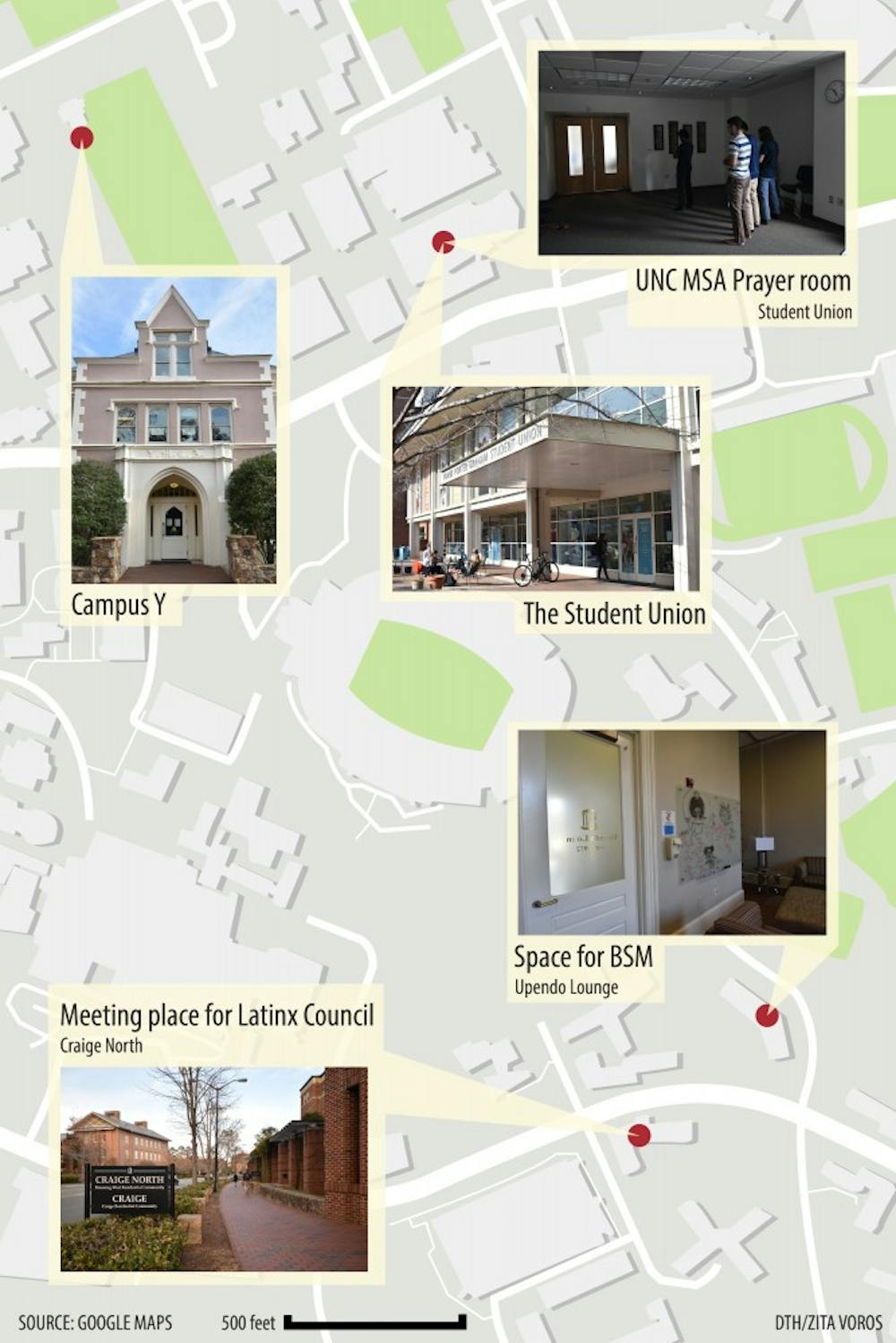“In terms of unification of black students at UNC, it’s really the only space on campus, besides the (Sonja Haynes) Stone Center where students can come and get away,” Shockley said. “UNC is a predominately white institution. Sometimes you do need a break and you need to be around people that look like you and can relate to some of the things you may be dealing with.”
Shockley said BSM acquired its first home on campus in 1972 in Chase Hall, which was torn down in 2003. Since 1988, their space has been moved from the Union to the Stone Center to SASB North.
“When things happen — like after the election — we opened (the Upendo Lounge) up as a safe space for people to come and kind of share their feelings and talk about different things,” he said. “It definitely shows that the University cares and respects and embraces a diverse culture.”
Ayoub Ouederni, president of UNC’s Muslim Students Association, refers to the organization’s prayer room in the Union as the “hub” of Muslim life on campus.
“There’s a sizeable Muslim population on campus and they need a place to perform their daily prayers, so we work with the Union to reserve that as we would with any other room,” he said.
Ouederni said without the prayer room, UNC MSA members would not have a place to gather for prayer. But the organization’s main project this year is to fundraise toward the establishment a student center on campus.
“In Chapel Hill, there’s no Islamic institution or mosque or anything, and so when school is closed or when school’s out of session, we have hundreds of students here who don’t have a place to pray or gather,” Ouederni said. “That’s something we want to fix.”
The process of designating space in the Union to student groups is done by a Union Board of Directors subcommittee, known as the Space Allocation Committee.
Boateng Kubi, chairperson for Carolina Union Board, said the committee sends out an application to all 800 student organizations to fill out if they want space in the Union.
“Every student group has to reapply every single year,” Kubi said. “If you get delegated space for one year, that doesn’t mean it transfers over for the next academic year.”
After the application deadline, the Space Allocation Committee meets to tour the Union and decide what space should be allocated to each organization.
“It’s about a 5-hour process,” Kubi said. “We go and see how different orgs that currently have space are using the building.”
To get the day's news and headlines in your inbox each morning, sign up for our email newsletters.
Kubi said the committee received 84 applications this year and completed the 5-hour touring process on March 3.
Kubi said if a student group didn’t get a space, they can appeal twice. The only groups that don't have to apply for space are University-sponsored groups such as the Carolina Union Activities Board and student government.
“It’s a really back-and-forth process,” Kubi said. “We recognize that we simply do not have the square footage to meet the demand that is on this campus. But the committee works really hard to delegate it the best we can.”
Besides the Union, student groups can also use the Campus Y as a meeting place by filling out a room reservation form.
Lauren Eaves, former co-president of the Campus Y, said all Campus Y committees and programs can use the Y, but the space is also used by certain departments, such as the Chancellor’s and Registrar’s office.
But Eaves said the Campus Y space has always fostered a sense of community.
“You can go take a nap there, you can go and put your food in the fridge — it’s kind of your home away from home, and I don’t think that would be the case if we didn’t have a physical location,” she said.
university@dailytarheel.com



